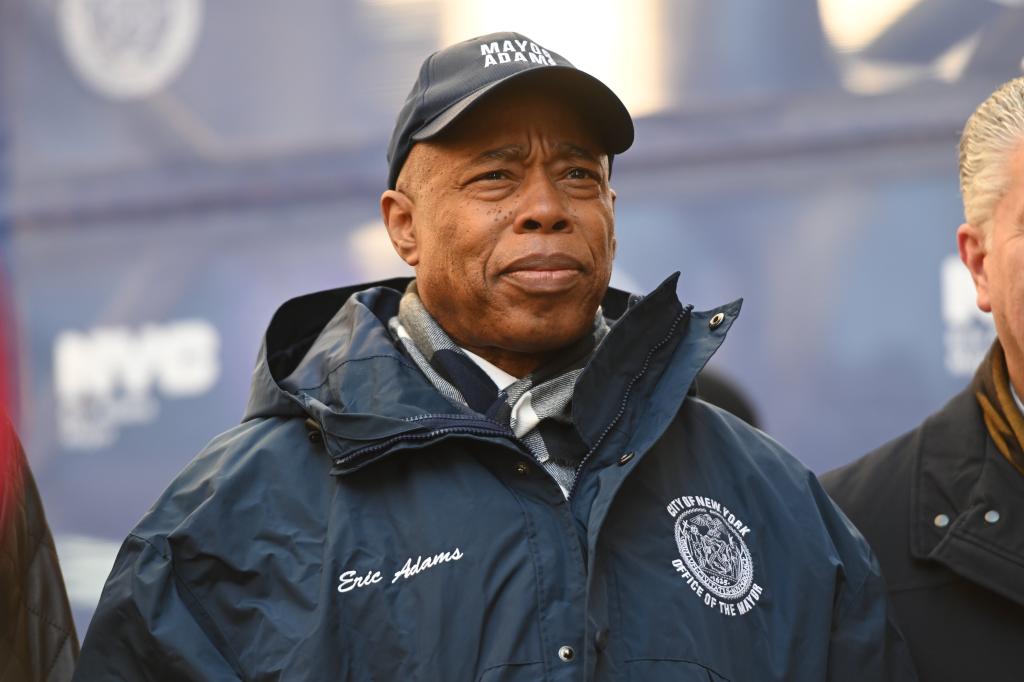The New York City Council has initiated legal proceedings against Mayor Eric Adams, challenging his executive order that circumvents a newly enacted law restricting the use of solitary confinement in city jails. The lawsuit, filed in Manhattan Supreme Court, contends that the mayor’s action constitutes an overreach of his authority and represents an unprecedented abuse of power, undermining the democratic process. At the heart of the dispute lies Local Law 42, passed by the Council in December 2023, which sought to significantly limit the duration of solitary confinement, permitting only a four-hour “de-escalation” period. The law also aimed to reform inmate transportation practices by prohibiting the use of handcuffs and leg irons during transit. Mayor Adams vetoed the legislation, but the Council subsequently overrode his veto.
In a move perceived by the Council as retaliatory, Mayor Adams issued an emergency executive order just one day before Local Law 42 was scheduled to take effect. This order effectively suspended key provisions of the law, granting the Department of Corrections discretion to determine solitary confinement durations based on individual inmate circumstances. The mayor’s justification for the emergency order centered on concerns for the safety of jail staff and other inmates, arguing that the restrictions imposed by Local Law 42 would create a dangerous environment within the city’s correctional facilities, particularly at Rikers Island. The City Council, however, argues that the mayor’s justification lacks merit and that his actions are driven by a desire to circumvent the legislative process simply because his veto was overridden.
The Council’s lawsuit asserts that the mayor acted “beyond lawful authority” in issuing the executive order and seeks its complete revocation. The suit highlights the mayor’s repeated extension of the emergency declaration every 30 days and the suspension of the law every five days, further solidifying their argument of an abuse of power. The Council maintains that the mayor’s actions not only undermine the democratic process but also perpetuate the human rights and safety crisis at Rikers Island by maintaining a status quo of failed policies and practices. They emphasize that the continued use of solitary confinement inflicts physical, psychological, and emotional harm on inmates, ultimately making the city and its jails less safe.
City Council Speaker Adrienne Adams has strongly condemned the mayor’s actions, characterizing them as a blatant disregard for the democratic process and a dangerous precedent. She emphasized the Council’s commitment to ending the harmful practice of solitary confinement, citing its detrimental impact on inmates’ well-being and the overall safety of correctional facilities. Public Advocate Jumaane D. Williams echoed these sentiments, accusing the mayor of attempting to maintain a dangerous status quo at Rikers Island and highlighting the “moral and legal imperative” of ending solitary confinement. The lawsuit has garnered support from several prominent organizations, including The Bronx Defenders and the New York Civil Liberties Union, further bolstering the Council’s legal challenge.
The core of the legal battle revolves around the separation of powers between the executive and legislative branches of city government. The Council argues that the mayor’s use of emergency powers to circumvent a duly enacted law sets a dangerous precedent, effectively granting the executive branch unchecked authority to override legislative decisions. This, they argue, undermines the fundamental principles of democratic governance and threatens the balance of power essential to a functioning democracy. The mayor’s defense, on the other hand, rests on the assertion that his actions are necessary to maintain order and safety within the city’s jails, and that the Council’s legislation poses an unacceptable risk to both inmates and staff. This defense raises questions about the appropriate use of emergency powers and the extent to which executive authority can be exercised in the face of legislative opposition.
The outcome of this lawsuit will have significant implications for the future of solitary confinement in New York City jails and the balance of power between the mayor and the City Council. A ruling in favor of the Council would reaffirm the legislative branch’s authority to enact laws and restrict the mayor’s ability to use emergency powers to circumvent those laws. Conversely, a ruling in favor of the mayor could embolden future executive actions that bypass the legislative process, potentially setting a precedent for greater executive authority in other areas of city governance. This legal challenge represents a crucial juncture in the ongoing debate over solitary confinement and its impact on the human rights and safety of incarcerated individuals, as well as the broader question of the proper balance of power within a democratic system.











